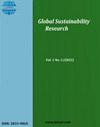Toward environmental sustainability: Nexus between tourism, economic growth, energy use and carbon emissions in Singapore
引用次数: 25
Abstract
Singapore is a renowned tourist destination; however, the country's rapid economic growth has led to rising energy consumption and carbon emissions. This study aims to examine the factors that contribute to carbon dioxide (CO2) emissions in Singapore, including tourism, economic growth, and energy use. The dynamic ordinary least squares (DOLS) approach was used to analyze time series data from 1990 to 2020. The results of the empirical study revealed that the tourist coefficient is positive and significant. A 0.50% increase in CO2 emissions relates to a 1% increase in tourism activities over time, according to the findings. In addition, the result indicates that the economy's long-run growth coefficient is significantly negative. This shows that a 1% economic growth will reduce CO2 emissions by 0.03% in the long run. Furthermore, a positive and statistically significant correlation for energy consumption suggests that a long-term increase of 1% in energy consumption is associated with an increase of 0.88% in CO2 emissions. To promote the emergence of sustainable development and a low-carbon economy, this article proposed policy recommendations addressing the reduction of emissions and the promotion of ecologically responsible and sustainable tourism while boosting the utilization of renewable energy technologies.迈向环境可持续性:新加坡旅游业、经济增长、能源使用和碳排放之间的关系
新加坡是一个著名的旅游胜地;然而,该国经济的快速增长导致了能源消耗和碳排放的增加。本研究旨在研究新加坡的二氧化碳(CO2)排放因素,包括旅游、经济增长和能源使用。采用动态普通最小二乘(DOLS)方法对1990 ~ 2020年的时间序列数据进行了分析。实证研究结果表明,旅游系数为正且显著。研究结果显示,随着时间的推移,二氧化碳排放量每增加0.50%,旅游活动就会增加1%。此外,结果表明,经济的长期增长系数显著为负。这表明,从长远来看,1%的经济增长将减少0.03%的二氧化碳排放。此外,能源消耗的正相关和统计显著性表明,能源消耗的长期增长1%与二氧化碳排放量的增长0.88%相关。为了促进可持续发展和低碳经济的出现,本文提出了减少排放和促进生态负责任和可持续旅游的政策建议,同时促进可再生能源技术的利用。
本文章由计算机程序翻译,如有差异,请以英文原文为准。
求助全文
约1分钟内获得全文
求助全文
来源期刊

Global Sustainability Research
sustainability and environmental focus-
自引率
0.00%
发文量
0
期刊介绍:
Global Sustainability Research (ISSN: 2833-986X) is an Open Access journal dedicated to supporting the rapidly expanding area of global sustainability research. Global Sustainability Research Journal publishes original research and reviews which seeks to address and discuss ways to deliver sustainable development. Manuscripts submitted to Global Sustainability Research must address issues linked with the achievements of sustainability and sustainable development goals.
 求助内容:
求助内容: 应助结果提醒方式:
应助结果提醒方式:


